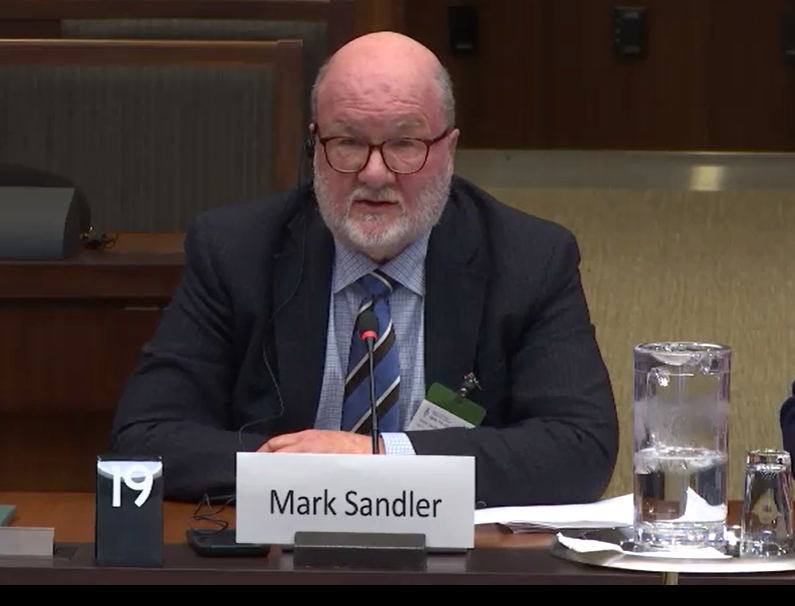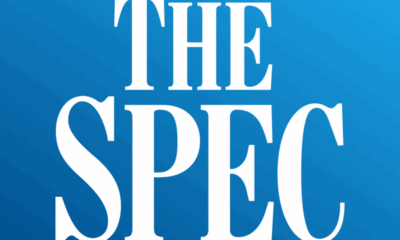Politics
Mixed Reactions Emerge as Canada Introduces Combatting Hate Act

The introduction of the federal Combatting Hate Act, known as Bill C-9, on September 19, has sparked a diverse range of responses during committee hearings. While some advocate groups welcome the bill as a necessary measure in the face of rising hostility, particularly against Jewish communities, critics argue it may infringe on free speech and fail to address enforcement issues.
Bill C-9 aims to amend the Criminal Code by establishing four new offences related to hate crimes. These include prohibiting the intimidation and obstruction of individuals in certain public spaces, categorizing hate-motivated crimes as specific offences, and criminalizing the wilful promotion of hatred through the public display of hate symbols. Additionally, the bill introduces a formal definition of “hatred” based on previous Supreme Court rulings.
Legal experts, like Mark Sandler, a criminal lawyer and chair of the Alliance of Canadians Combating Antisemitism, contend that existing laws already provide sufficient tools for law enforcement. Sandler emphasized that the primary challenge has been the lack of enforcement rather than inadequate legal measures. He stated, “The biggest impediment to the prosecution of hate-motivated criminals in Canada has been the failure to enforce existing laws.”
Sandler also highlighted the confusion among police regarding the distinction between protected speech and hate speech. He cited examples where statements that cross the line into hate speech are not properly identified, which complicates enforcement efforts. “Those distinctions are not clear to policing, and they have to be through education,” he explained.
Community Perspectives on Bill C-9
Community responses to the proposed legislation vary significantly. Some groups, including the Centre for Israel and Jewish Affairs (CIJA), support the bill as a crucial step toward stronger protections for vulnerable populations. Eta Yudin, CIJA’s vice-president for Quebec, pointed out that Montreal’s Jewish community accounted for nearly 64 percent of all hate crimes targeting religious groups in the first half of 2023. She called for increased political support for law enforcement to ensure effective policing, stating, “Public safety is not optional.”
Conversely, some advocacy organizations express concern that the bill may disproportionately affect certain demographics. The Canadian Civil Liberties Association (CCLA) warned that Bill C-9 risks criminalizing peaceful protests and could harm the very communities it aims to protect. Anaïs Bussières McNicoll, representing the CCLA, stated, “Criminal law is not the solution to all societal challenges.”
During the hearings, the issue of how to define hate also emerged as a contentious point. Bruce Pardy, a law professor at Queen’s University, criticized the bill for potentially criminalizing emotions rather than actions. He questioned the clarity of the new hate standards, suggesting that they may lower the threshold for what constitutes hate speech.
Concerns Over Enforcement and Implementation
Experts have raised concerns about the practical implications of Bill C-9, particularly regarding police training and the handling of hate crime cases. Former deputy Crown attorney Rochelle Direnfeld emphasized the need for specialized training for prosecutors in handling hate-motivated cases. She urged provincial attorneys general to prioritize these prosecutions to prevent them from being withdrawn or settled with peace bonds, a common issue in the current system.
The bill also introduces provisions intended to address intimidation and obstruction during protests. Sayeh Hassan, a member of CIJA’s legal task force, clarified that the new intimidation provisions are not meant to suppress peaceful demonstrations but rather to target deliberate actions that create fear. “It has to be deliberate intent, creating fear, making you afraid to go into these places,” she explained.
Despite the ongoing debate, some law enforcement agencies, particularly in Ottawa and Toronto, have begun to utilize existing laws to address hate crimes and protests more effectively. Sandler noted a shift in police priorities, indicating that the conversation around enforcement is beginning to yield results. However, he expressed concern about the lack of movement in Montreal.
The potential for misuse of the legislation has also been a topic of discussion. Critics, including Sandler, warned that the requirement to prove “willful promotion of hatred” could be exploited. This concern was echoed by Nusaiba Al Azem, legal director of the National Council of Canadian Muslims, who cautioned against the ambiguity surrounding hate symbols and their enforcement.
As Bill C-9 advances through parliamentary processes, the discussions surrounding its implications for free speech, community safety, and law enforcement practices continue to evolve. The balance between protecting vulnerable communities and safeguarding civil liberties remains a critical focus for lawmakers and advocacy groups alike.
-

 World3 months ago
World3 months agoScientists Unearth Ancient Antarctic Ice to Unlock Climate Secrets
-

 Entertainment4 months ago
Entertainment4 months agoTrump and McCormick to Announce $70 Billion Energy Investments
-

 Lifestyle4 months ago
Lifestyle4 months agoTransLink Launches Food Truck Program to Boost Revenue in Vancouver
-

 Science4 months ago
Science4 months agoFour Astronauts Return to Earth After International Space Station Mission
-

 Technology2 months ago
Technology2 months agoApple Notes Enhances Functionality with Markdown Support in macOS 26
-

 Top Stories3 weeks ago
Top Stories3 weeks agoUrgent Update: Fatal Crash on Highway 99 Claims Life of Pitt Meadows Man
-

 Sports4 months ago
Sports4 months agoSearch Underway for Missing Hunter Amid Hokkaido Bear Emergency
-

 Politics3 months ago
Politics3 months agoUkrainian Tennis Star Elina Svitolina Faces Death Threats Online
-

 Technology4 months ago
Technology4 months agoFrosthaven Launches Early Access on July 31, 2025
-

 Politics3 months ago
Politics3 months agoCarney Engages First Nations Leaders at Development Law Summit
-

 Entertainment4 months ago
Entertainment4 months agoCalgary Theatre Troupe Revives Magic at Winnipeg Fringe Festival
-

 Top Stories7 days ago
Top Stories7 days agoFamily Remembers Beverley Rowbotham 25 Years After Murder




















